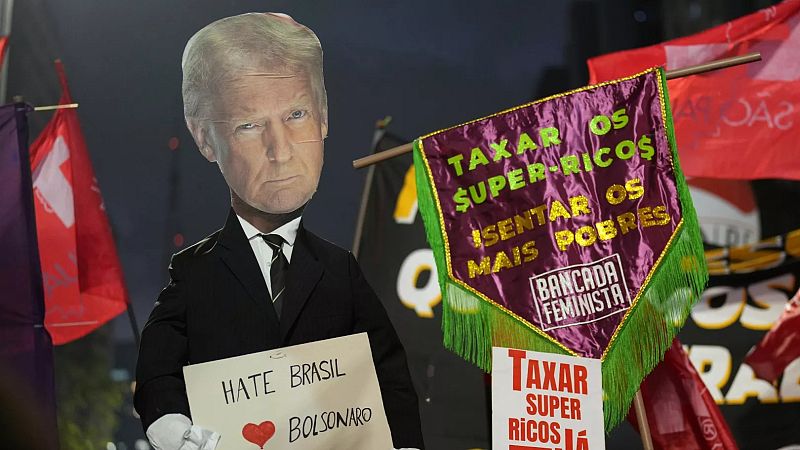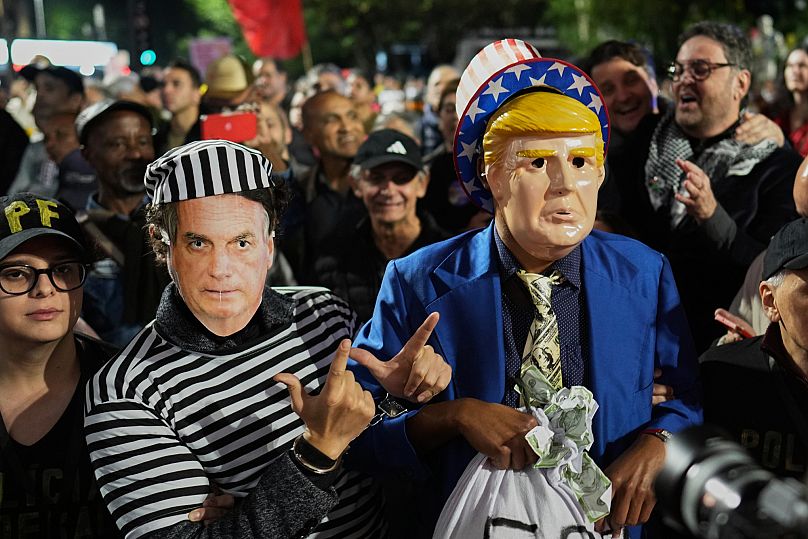
Brazilian President Luiz Inácio Lula da Silva had said that he would impose retaliatory tariffs on the United States if Trump follows through on a pledge to increase levies by 50% in response to the South American country's criminal trial against his predecessor, Jair Bolsonaro.
Lula said he will trigger Brazil's reciprocity law approved by Congress earlier this year if negotiations with Washington fail.
“If there’s no negotiation, the reciprocity law will be put to work. If he charges 50 (% tariffs) from us, we will charge 50 from them,” Lula told TV Record in excerpts of an interview that will be fully aired later in the day. “Respect is good. I like to offer mine and I like to receive it.”
Lula's comments increase the risk of a tariff war erupting between the two countries, similar to the one that has occurred between the US and China. Trump has vowed to respond forcefully if countries seek to retaliate against the US by imposing tariffs of their own.
The president of Brazil's Senate, Davi Alcolumbre, and Chamber of Deputies Speaker Hugo Motta, a pair of moderates who have recently been at odds with Lula, agreed that the reciprocating law gives Brazil “the means ... to protect our sovereignty.”
“We will be ready to act with balance and firmness in defense of our economy, our productive sector, and the protection of Brazilian jobs,” they said in a joint statement.
Meanwhile, thousands of Brazilians gathered for a demonstration on Thursday in São Paulo against Trump's tariffs and in favour of taxing the super-rich.
Unions and social groups in São Paulo organised the protest as a call for taxing billionaires and confronting what they call “an anti-people Congress."
Following Trump's announcements, the movement incorporated critics of tariffs and their significant impact on Brazil's economy.
Many demonstrators wore green and yellow, as well as Brazil’s national football team jerseys, carrying placards and signs that reaffirmed Brazil’s sovereignty amid Trump's tariff threat.
Some demonstrators also criticised the governor of São Paulo, Tarcísio de Freitas, an avid Trump supporter.

A new front in the trade war
With his tariff letter to Brazil, which he shared on social media on Wednesday, denouncing Bolsonaro's "witch hunt" trial, Trump launched a new front in his trade conflicts, using import levies as a direct means of meddling in another country's internal affairs.
The US president has already tried to use tariffs as what he said was a way to combat fentanyl trafficking and as a negotiating tool to change how other nations tax digital services and regulate their economies.
Bolsonaro, an ally of Trump, is facing criminal charges, and the US president is seeking to control the outcome of his trial.
Bolsonaro maintains that he is being politically persecuted by Brazil’s Supreme Court over his charges on the alleged plot to remain in power after his 2022 election loss to Lula.
On Thursday, Lula ordered his diplomats to return Trump’s letter if it physically arrives at the presidential palace in Brasilia.
In the letter, Trump threatened to impose a 50% tariff on Brazil beginning on 1 August.







